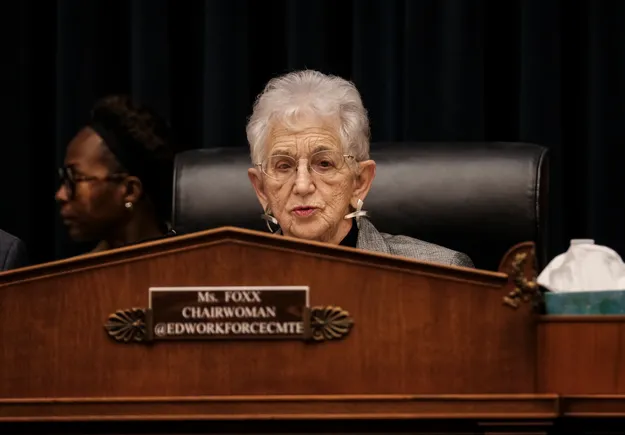Dive Brief:
- Rep. Virginia Foxx, the Republican chair of the House’s education committee, is urging the Biden administration to avoid making changes to 2011 guidance governing tuition-sharing contracts between colleges and third-party providers.
- In a Thursday letter to Education Secretary Miguel Cardona, Foxx said it has “been brought to my attention that the Department is about to regulate” on the guidance, which has been credited with kickstarting the online program management industry.
- “Eliminating or revising the guidance now would obliterate a decades old, foundational principle of public-private ed tech partnerships that has worked,” Foxx said.
Dive Brief:
Colleges are largely barred by federal law from providing incentive-based compensation to companies that recruit students into their programs. However, the 2011 guidance carved out an exception by allowing colleges to strike tuition-sharing deals with online program management companies that help with recruiting — so long as they also provide a larger bundle of services.
The OPM industry boomed in the years after the 2011 guidance was issued, with tuition-sharing proving popular among colleges that wanted to grow their online offerings quickly.
By 2021, OPMs supported at least 2,900 educational programs, according to a report that year from the U.S. Government Accountability Office. The report recommended that the Education Department increase its oversight of these relationships.
Under tuition-share deals, OPMs generally cover the upfront costs of launching programs in exchange for a cut of their revenue.
However, some lawmakers and consumer advocacy groups have argued that these relationships encourage OPMs to use predatory recruiting tactics and drive up the price of online education. Some have even called on the Education Department to rescind the guidance.
In her letter, Foxx cited an October blog post from Phil Hill, an ed tech expert, that suggested the Education Department may update the 2011 guidance before the next administration takes over.
“The word on the street (unconfirmed) is that ED might revise or rescind this rev-share-related guidance in the coming weeks,” Hill wrote. He speculated that any action would happen shortly after Election Day.
An Education Department spokesperson said Friday that it has received the letter and is reviewing it. The spokesperson did not answer a question about whether it planned to update or rescind the guidance before President-elect Donald Trump takes office.
Foxx slammed the possibility that the department would change the guidance.
“There is uniform support from postsecondary education for contracts with third-party servicers such as online program managers, so I can only assume that a decision to consider reversing the bundled services guidance is because of progressive activists with longstanding opposition to public-private partnerships in education,” Foxx said.
A spokesperson for 2U, a high-profile OPM, likewise praised relationships between these companies and colleges.
“Our position is clear: higher education needs more flexibility and innovation to expand opportunity and meet the demands of today’s labor market,” the spokesperson said via email. These partnerships empower universities to offer quality education without increasing costs by leveraging essential, leading-edge services from companies like 2U.”
Colleges and higher education leaders have voiced support for the 2011 guidance in public comments. However, some colleges and their workers have cut ties with OPMs or voiced criticisms over the arrangements.
In 2022, two professors at Arcadia University stepped down in an effort to stop the launch of a hybrid physician assistant program with 2U, a high-profile OPM, according to The Chronicle of Higher Education. One professor said the company tried to treat the program as a “cash cow” and that OPM officials made it clear they didn’t care about its quality.
2U filed for bankruptcy earlier this year to shed a high debt load and emerged as a private company. But when it filed for bankruptcy, one of its longtime partners, Fordham University, filed an objection to the restructuring, Inside Higher Ed reported.
In the objection, the university alleged that it has been “continuously plagued by 2U’s incompetency and repeated nonperformance” and said numerous students had complained about the company not securing required field placements for them.
2U contested Fordham’s filing, pointing to a 95% on-time clinical placement rate for students for over 25 healthcare and education programs last year, according to Inside Higher Ed.

